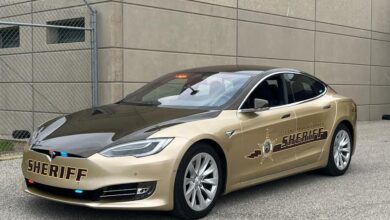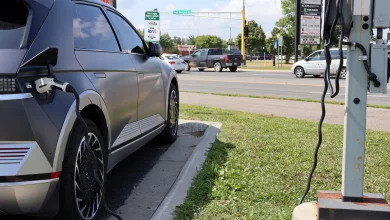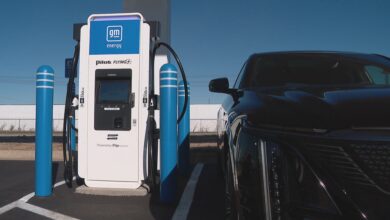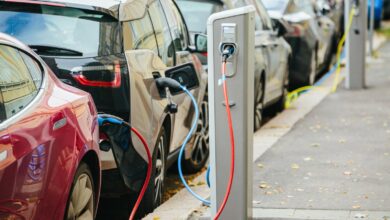Supercar EV Sales Have Slumped. But the Story’s More Complicated.
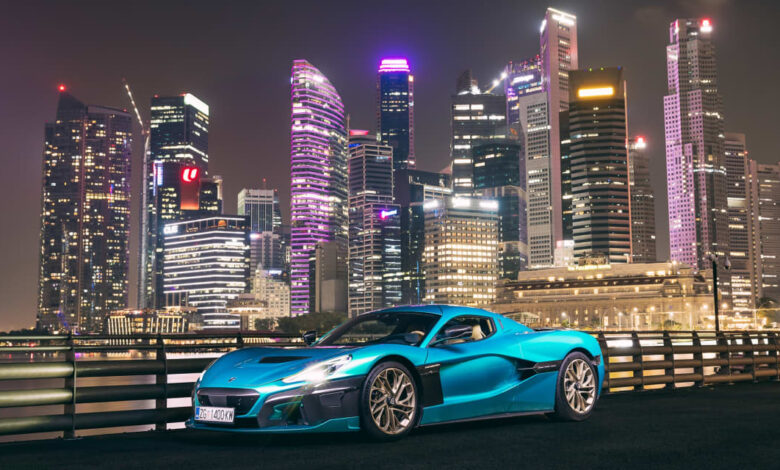
The auto industry is fully committed to electrification, including supercar manufacturers such as Ferrari, Maserati, Aston Martin, Lamborghini, and Bugatti. But that doesn’t mean the road to full EV is not going to be full of bumps.
Early EV supercars haven’t been flying out of the lots, and some automakers are taking a cautious approach.
Take Lamborghini: The company showed off its Lanzador, an electric four-seat 2+2 grand tourer, during Monterey Car Week last year. It should appear in 2028. But so far, the Italian company hasn’t shown battery-electric versions of its Huracán successor or the Revuelto (which is already a plug-in hybrid).
MORE: For France’s Former First Lady Carla Bruni-Sarkozy, the ‘Garden of Eden’ Is in Provence
In an interview with Automotive News Europe, Lamborghini CEO Stephan Winkelmann said that EV supercars are “not something that is selling so far. It’s too early, and we have to see down the road if and when this is going to happen.”
Advertisement – Scroll to Continue
Supercar companies are reporting that their customers—some, not all—are very wedded to the roar of a V8 or V12 engine. EVs may offer the same performance off the line, but not the same aural symphony. Ferrari—whose first EV is expected at the end of 2025—is among the automakers that believes customers will want carefully calibrated artificial sounds in the EVs it offers. Stellantis has reached similar conclusions. One reason upper-level plug-in hybrids are selling is they offer both excellent range and that satisfying internal-combustion rumble.
Sound matters to Louis Navellier, founder and chief investment officer of asset manager Navellier & Associates. “As the owner of a Porsche 918 Spyder and a Ferrari 90 Spider, I cannot imagine buying an electric sports car, since a supercar needs to make noise,” he says. “I also have a fast electric car, an Audi RS GT, but it is too heavy to be a sports car. I’m glad I leased that car (on a Taycan platform) since its resale value is horrible. The bottom line is EV manufacturers have to have lease specials to move EVs. Hybrid supercars are OK, but not an EV supercar.”
Rimac makes the ultra-fast Nevera supercar, which is also the basis for the Pininfarina Battista. These cars can leap to 60 miles per hour in less than two seconds, and they’ve gotten a ton of publicity. Rimac, based in Croatia, consults with many other automakers on electrification, but what it hasn’t been able to do is shift all of its limited run of 150 Neveras.
Advertisement – Scroll to Continue
MORE: A New Generation Running One of Napa Valley’s Star Vineyards Is Hopeful About the Future
There are lots of ways of looking at this. The purchase price of the Nevera is an eye-watering US$2.2 million. But, of course, similarly priced supercars have sold out. Bugatti Rimac, a joint venture between the Rimac Group and Porsche AG, owns Bugatti and an electric drivetrain with that badge would seem a natural, but so far that’s not happening. The replacement for the Chiron will have a non-turbo V16 in a hybrid drivetrain.
Navellier’s take is that “the founder of Rimac [Mate Rimac] is correct. He can’t sell any more electric supercars, so even he now wants to put engines in his cars, and developed a nice V16 engine with Bugatti.”
Advertisement – Scroll to Continue
It’s easy to read too much into this. Plenty of high-priced EVs are selling relatively well, and others, well, there’s an explanation.
For instance, the Porsche Taycan suffered a big 54% global sales drop in the first quarter of 2024, compared to the same period in 2023. But (a big but) the Taycan is a bit of a lame duck until the 2025 model (on sale this summer) appears with a bigger battery, more range, quicker charging, and more. When models are due for replacement they always suffer in sales.
MORE: TAG Heuer Rolls out Latest Monaco Chronograph Watches Ahead of the Formula 1 Race
“Although it’s had its moments, the Taycan has been a success for us,” says Porsche spokesman Calvin Kim. “To give you some context, during the time when we didn’t have supply issues, it generally kept up with the 911 from a volume perspective. We’re seeing good product recognition from consumers regarding the next-generation model which should be hitting dealers in about a month or two, and we expect similar positive sales feedback.”
Advertisement – Scroll to Continue
Far from retrenching, Porsche has expanded its EV lineup with an all-electric version of the Macan for 2024. The car starts at US$80,450.
Rivian appears on target with its projections, delivering 13,588 of its relatively costly pickups and SUVs in the first quarter. Analysts had expected Rivian to deliver 13,000 cars in the quarter, and that goal was modestly surpassed. For the year, Rivian hopes to build 57,000 vehicles.
Lucid, whose Air sedan models start at US$69,900, delivered only 1,967 vehicles globally in the first quarter, but that was up nearly 40% from the same period in 2023. Its revenue for the period was US$172.7 million. The debut of its Gravity SUV model later this year should dramatically increase sales, since not that many consumers want sedans these days.
Advertisement – Scroll to Continue
MORE: More Impact Funds Are Linking Their Compensation to Social and Environmental Results
The elephant in the room is always Tesla, which produced 433,000 vehicles in the first quarter and delivered 387,000 of them. Of those deliveries, 369,783 were the Model 3 or Y, and only 17,027 were other models. This is an 8.5% decline from 2023. Analysts had expected sales of 457,000. It was Tesla’s first year-over-year decline since 2020. But maybe it’s a case of interrupted production rather than consumer indifference. Attacks on shipping in the Red Sea resulted in the temporary closure of the company’s German factory, which was also attacked by fire-starting environmental activists. Tesla also blamed the slow production ramp-up of the updated Model 3 at its factory in Fremont, California.
Looking at the overall EV market, including the major manufacturers, results are mixed. Fully electric cars had 7.3% market share in the U.S. as of the first quarter, a decline. But sales in the quarter were up 2.6% year to year. EV sales for the big manufacturers are mere blips on the balance sheet. Ford (thanks to the F-150 Lightning and Mach-E Mustang) sold 20,233 EVs to Americans in the quarter, and GM 16,169. The winner was Hyundai/Kia/Genesis, which outpaced Ford with 22,936. This can partly be explained by very attractive and reasonably placed entries such as the Hyundai Ioniq 5 and 6.
The growing profusion of EV models on the market has cut into Tesla’s lead. In 2023, Tesla had a 55% EV market share in the U.S., but in the first quarter that was down to 52%. Way back in the first quarter of 2022 it had a 75% EV share.
The market is constantly evolving, and it’s a little early for dire conclusions.
MORE: An Institution of New York’s Upper East Side Art Scene Settles in Downtown
